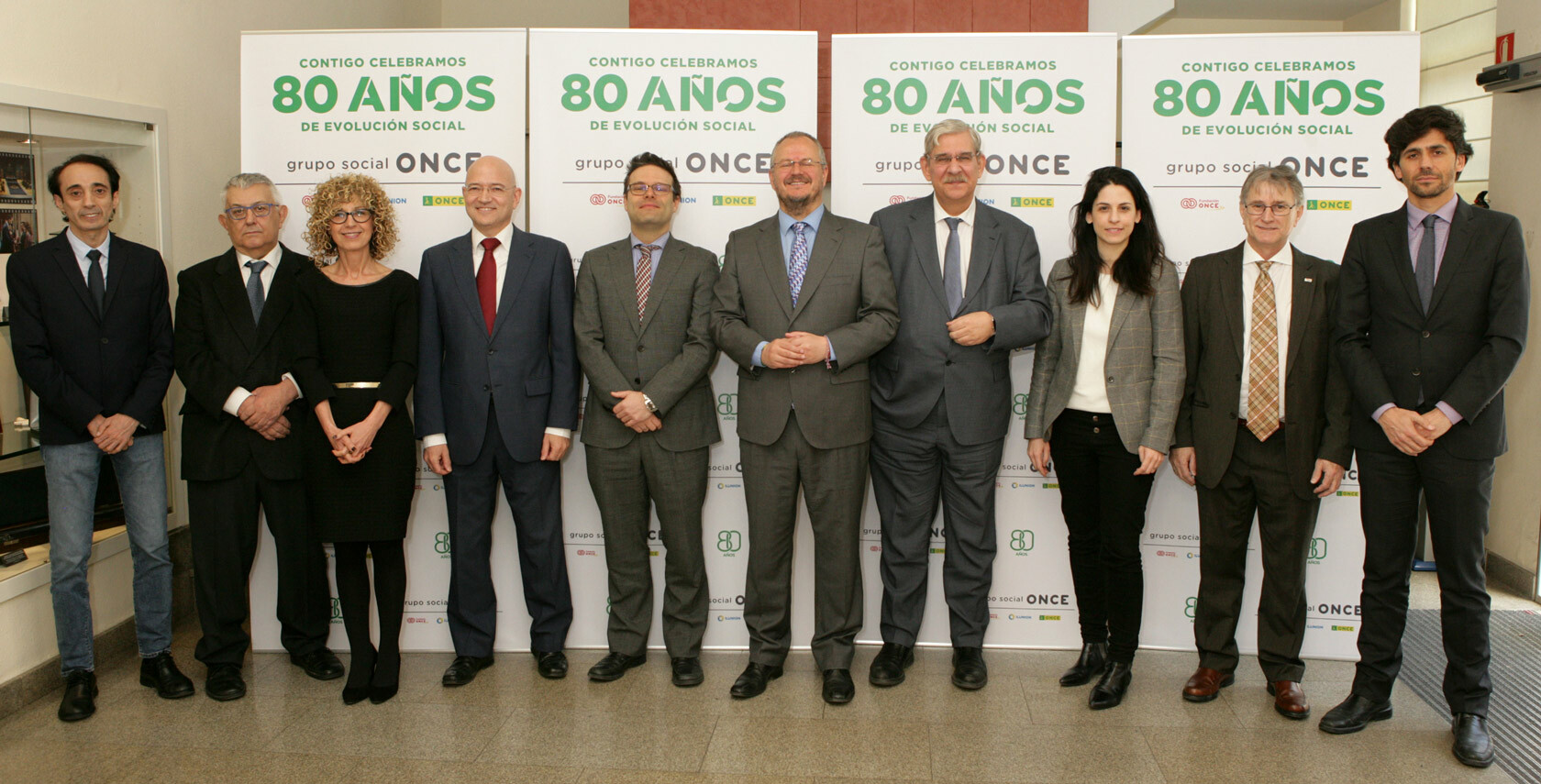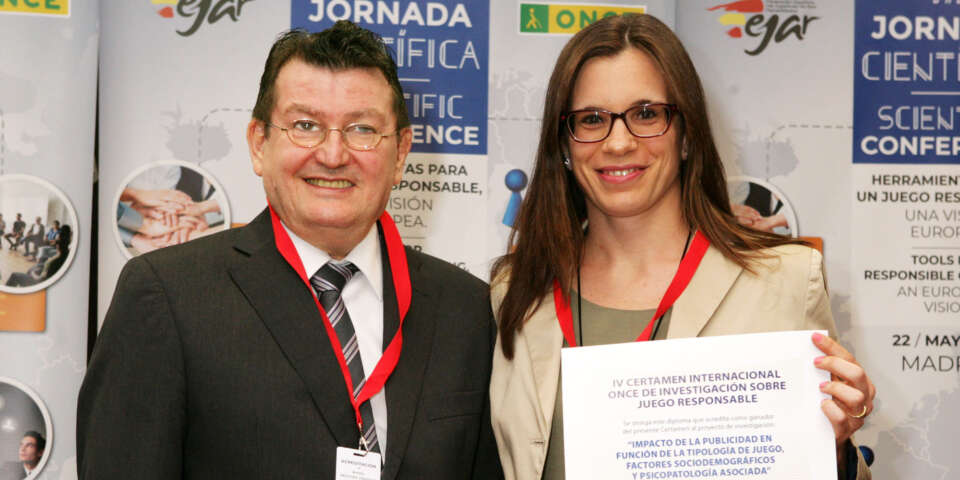The director general of ONCE, Ángel Sánchez, presents the winner of the fourth International Responsible Gaming Competition to Dr. Marta Sancho Navarro, of Hospital de la Santa Creu i Sant Pau, Barcelona, Spain. Dr. Sancho and a team of researchers submitted the winning paper titled, Impact of advertising according to game type, sociodemographic factors and associated psychopathology.
In recent years, ONCE has adopted a new biennial competition format to fulfil the “Research” requirement for responsible gaming certification through the European Lotteries. The aim of this requirement is to promote research into the factors that facilitate the appearance of risk behavior, in order to reduce, as far as possible, the potential negative impact that gambling can have on a very small sector of consumers.
In this fourth and latest edition of the competition, the winning paper was titled Impact of advertising according to game type, sociodemographic factors and associated psychopathology, presented by a team of researchers led by Dr. Marta Sancho from Hospital de la Santa Creu i Sant Pau (Barcelona). The paper analyzes the impact of gambling-related advertising on both persons with a gambling addiction (clinical sample), and persons without any such addiction (sample of the general public). The study included a total of 220 participants, 89 with a gambling addiction and 131 without. All participants were evaluated through questionnaires on gambling issues, other associated symptoms (anxiety or depression) and personality, and through a computer test to evaluate attention bias towards gambling-related stimuli, such as advertising.
The results gave rise to some noteworthy conclusions. The clinical sample showed greater interest in gaming machines, sports betting, and roulette compared to the general public sample, while the general public sample’s interest in lotteries was greater. Additionally, the clinical sample showed a greater vulnerability to the impact of gambling-related advertising, which increased in line with the seriousness of the gambling behavior. Furthermore, the study revealed that young people were more vulnerable to the impact of gambling-related advertising; increasing their interest in gambling, inducing a more pro-gambling attitude in them, and increasing their knowledge of gambling providers, especially in relation to online gambling sites.

Projects submitted for ONCE's fourth International Responsible Gaming Competition were assessed by a jury of outstanding experts and distinguished professionals.
In previous editions of the competition, studies focused on promoting research into variables that make it possible for behavioral alterations to occur in relation to gambling from different perspectives (2011) and developing an online expert system for identifying and intervening in gambling problems (2013). The third and fourth editions of the competition concentrated on evaluating the addictive capacity of games of chance.
The first winning paper, titled Factors that facilitate pathological addictive gambling behaviors in young people and adolescents, was presented by a team of researchers led by Dr. Ana Estévez, of Deusto University, Bilbao, Spain. The ultimate aim was to identify, relate and establish a relational map of the risk factors inherent in gambling that can activate the psychosocial processes that underlie addiction.
In the second edition, the winning project was titled, Development of an on-line expert system for identifying and intervening in gambling problems, presented by Dr. Francisco Labrador, who led a team from the psychology faculty from the Complutense University, Madrid, Spain. The aim of the study was to develop an online system for identifying and intervening in gambling problems. This system has been used by ONCE to improve its product design tool, providing an instrument for greater control over the risk impact of its products.
Another paper presented by Dr. Ana Estévez of Deusto University received an award in the third competition. The study was titled, Influence of commercial advertising on the risk behavior of adolescents in sports betting: Guide for regulators, operators, institutions and the media. The study measured the influence of commercial advertising on young people’s behavior in sports betting. Its findings highlight the responsibility of companies in the gambling sector, in designing advertising and marketing strategies that do not instigate gambling addiction.
ONCE’s commitment to responsible gaming and consumer protection is continuous and remains a top priority. The organization was the first operator in Spain to incorporate the responsible gaming standards established by the World Lottery Association and the European Lottery Association. The results of the winning studies in the various editions of the international competition are reported to the Spanish community, and particularly into the environments where they could be most useful when investigating, preventing or treating gambling-related pathology and problems. ONCE’s commitment to responsible gaming is materialized not only through this competition, but also through numerous measures implemented to protect consumers and its own employees. The competition is just one of many measures within ONCE’s commitment to research, responsible gaming and consumer protection.










